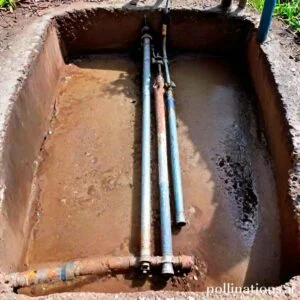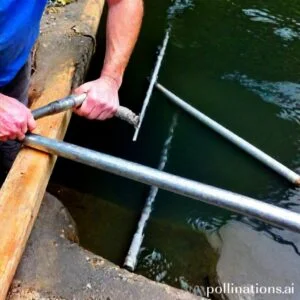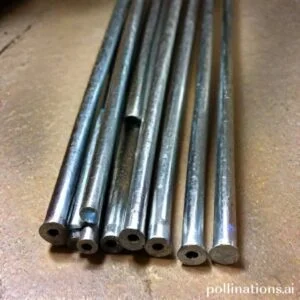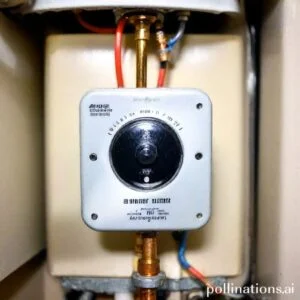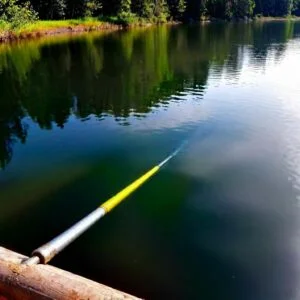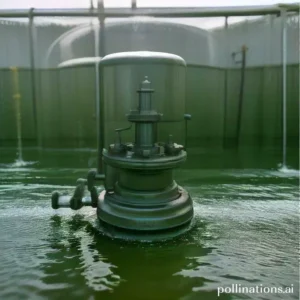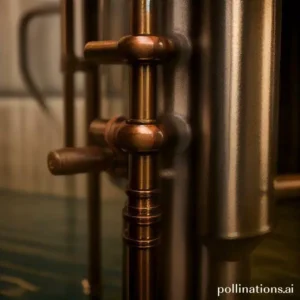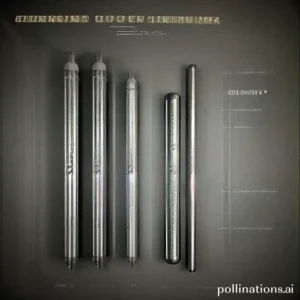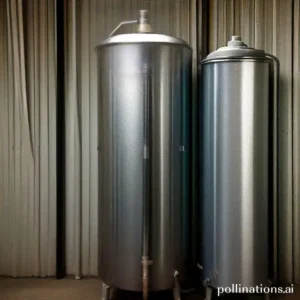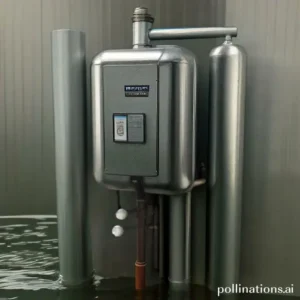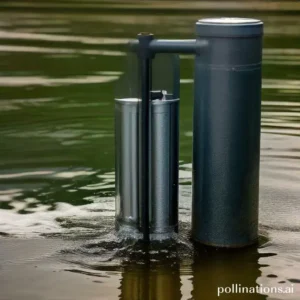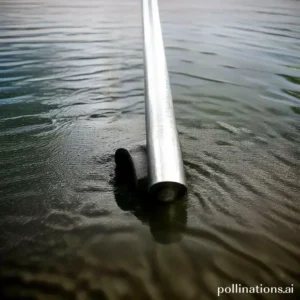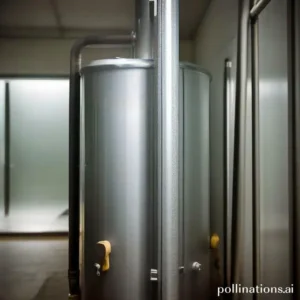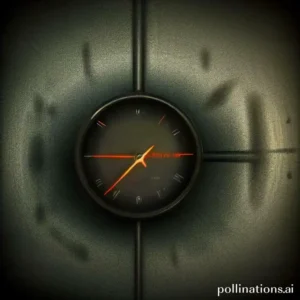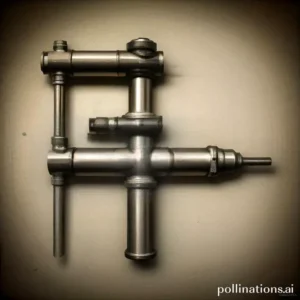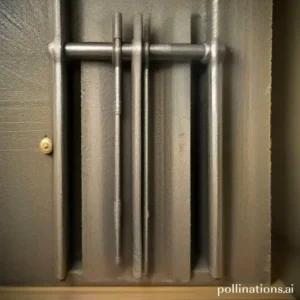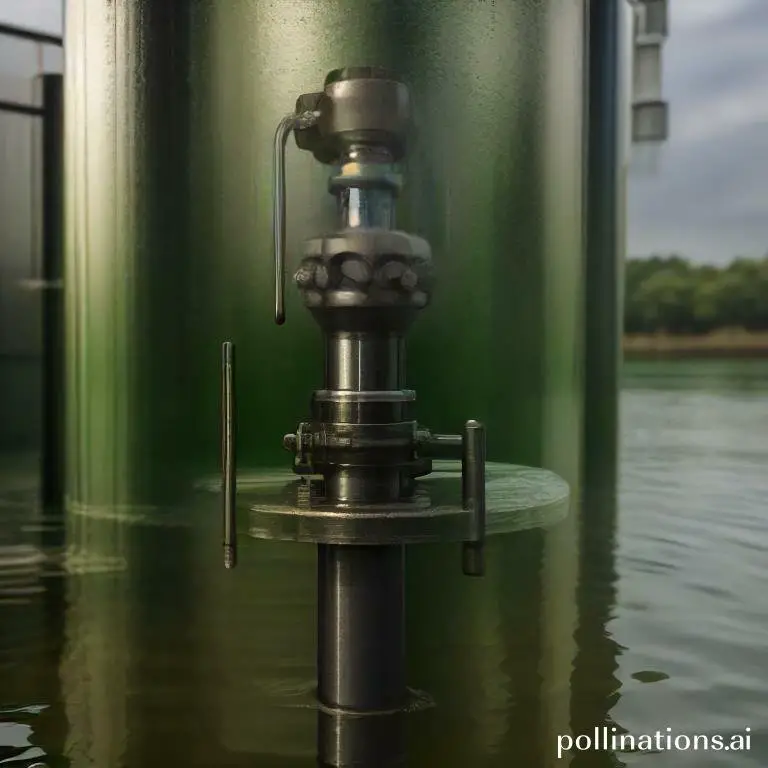
II. Recirculating systems are designed to reduce water waste and improve energy efficiency in water heaters.
III. When selecting an anode rod for a recirculating system, it is important to choose one that is compatible with the system’s design and materials to ensure optimal performance and longevity.
Anode rod compatibility with recirculating systems is an important aspect to consider in terms of maintaining the lifespan and efficiency of your water heater. Recirculating systems are designed to provide instant hot water, but they can cause accelerated corrosion on the anode rod.
It is crucial to choose an anode rod that is compatible with recirculating systems to prevent premature failure and costly repairs. By comprehending the compatibility requirements, you can ensure that your water heater remains in optimal condition, providing you with reliable hot water whenever you need it.
Types of Anode Rods
Anode rods are crucial components in water heaters, protecting the tank from corrosion and extending its lifespan. Discerning the different types of anode rods available is essential for maintaining a well-functioning water heater.
Magnesium Anode Rods
Magnesium anode rods are the most common type used in residential water heaters. They are highly effective at preventing tank corrosion and have a long lifespan. That being said, they tend to erode faster in hard water environments.
Aluminum Anode Rods
Aluminum anode rods are a cost-effective alternative to magnesium rods. They are suitable for areas with hard water as they have a slower rate of erosion. Notwithstanding, they are not as effective as magnesium rods in preventing corrosion.
Zinc Anode Rods
Zinc anode rods are primarily used in water heaters to reduce the unpleasant odor and taste of water caused by sulfur. They also provide some protection against tank corrosion, but their effectiveness is lower compared to magnesium or aluminum rods.
Combination Anode Rods
Combination anode rods, as the name suggests, are made of a combination of materials such as aluminum, magnesium, and zinc. These rods offer a balanced protection against corrosion and are suitable for areas with varying water conditions.
| Anode Rod Type | Corrosion Protection | Erosion Rate |
|---|---|---|
| Magnesium Anode Rods | High | Fast |
| Aluminum Anode Rods | Moderate | Slow |
| Zinc Anode Rods | Moderate | Moderate |
| Combination Anode Rods | Balanced | Varies |
Compatibility with Recirculating Systems
1. How recirculating systems affect anode rods
Recirculating systems play a crucial role in maintaining the efficiency and longevity of anode rods. These systems constantly circulate water, ensuring that it remains fresh and free from impurities. The continuous movement of water helps prevent the buildup of sediment and mineral deposits on the anode rods. This is particularly important as sediment and minerals can accelerate corrosion and reduce the lifespan of the rods.2. The importance of choosing the right anode rod for your recirculating system
Selecting the right anode rod for your recirculating system is essential for optimal performance and durability. Anode rods are available in various materials, including aluminum, magnesium, and zinc. Each material offers different levels of protection against corrosion, and the choice depends on the specific water conditions and the type of recirculating system. Aluminum: Aluminum anode rods are ideal for recirculating systems with soft water or water with low mineral content. They provide excellent protection against corrosion and are highly efficient in preventing the formation of scale and sediment. Magnesium: Magnesium anode rods are suitable for recirculating systems with hard water or water with high mineral content. They are effective in preventing the buildup of scale and sediment and can extend the lifespan of the system. Zinc: Zinc anode rods are commonly used in recirculating systems with corrosive water conditions. They offer superior protection against corrosion and are particularly beneficial in areas with aggressive water properties.3. Factors to consider when selecting an anode rod for a recirculating system
When choosing an anode rod for your recirculating system, several factors need to be considered: – Water quality: Assess the mineral content and aggressiveness of the water to determine the appropriate material for the anode rod. – System type: Different recirculating systems may have specific requirements for anode rod compatibility. Consult the manufacturer’s guidelines or seek professional advice. – Rod lifespan: Consider the expected lifespan of the anode rod. Some materials may require more frequent replacement than others. – Maintenance requirements: Take into account the maintenance needs of the anode rod material. Some materials may require periodic cleaning or inspection. By carefully considering these factors and selecting the right anode rod for your recirculating system, you can ensure optimal performance, minimize corrosion, and prolong the lifespan of your system. Remember to follow the manufacturer’s recommendations and conduct regular maintenance to keep your recirculating system in top condition.Installation and Maintenance
1. Steps for installing an anode rod in a recirculating system
Installing an anode rod in a recirculating system is a crucial step in ensuring the longevity and efficiency of your system. Follow these steps to install an anode rod:
- Step 1: Turn off the power supply to the recirculating system and ensure that it is completely disconnected from any electrical source.
- Step 2: Drain the water from the system by opening the drain valve. This will prevent any potential accidents or water damage during the installation process.
- Step 3: Locate the anode rod port on the recirculating system. It is usually located on the top or side of the tank.
- Step 4: Remove the old anode rod, if present, by unscrewing it from the port using a wrench or pliers.
- Step 5: Apply plumber’s tape to the threads of the new anode rod to ensure a tight seal.
- Step 6: Insert the new anode rod into the port and tighten it securely using a wrench or pliers.
- Step 7: Turn on the power supply to the recirculating system and check for any leaks or abnormalities.
- Step 8: Once the installation is complete, it is recommended to flush the system to remove any potential debris or sediment.
2. How often should you replace an anode rod in a recirculating system?
Regular maintenance and replacement of the anode rod in a recirculating system is essential to prevent corrosion and extend the lifespan of the system. The frequency of replacement depends on various factors such as water quality and usage. As a general rule of thumb, it is recommended to replace the anode rod every 2-3 years. In contrast, in areas with hard water or high mineral content, more frequent replacement may be necessary. Regular inspection of the anode rod is also recommended to detect any signs of deterioration or damage.
3. Signs that your anode rod needs to be replaced
Identifying the signs that indicate the need for anode rod replacement is crucial to prevent any potential damage to your recirculating system. Here are some signs that your anode rod needs to be replaced:
- Sign 1: Visible signs of corrosion or rust on the anode rod.
- Sign 2: Decreased hot water supply or longer heating times.
- Sign 3: Strange odors or metallic taste in the water.
- Sign 4: Leaks or water damage around the anode rod port.
If you notice any of these signs, it is recommended to replace the anode rod as soon as possible to prevent further damage to your recirculating system and ensure its optimal performance.
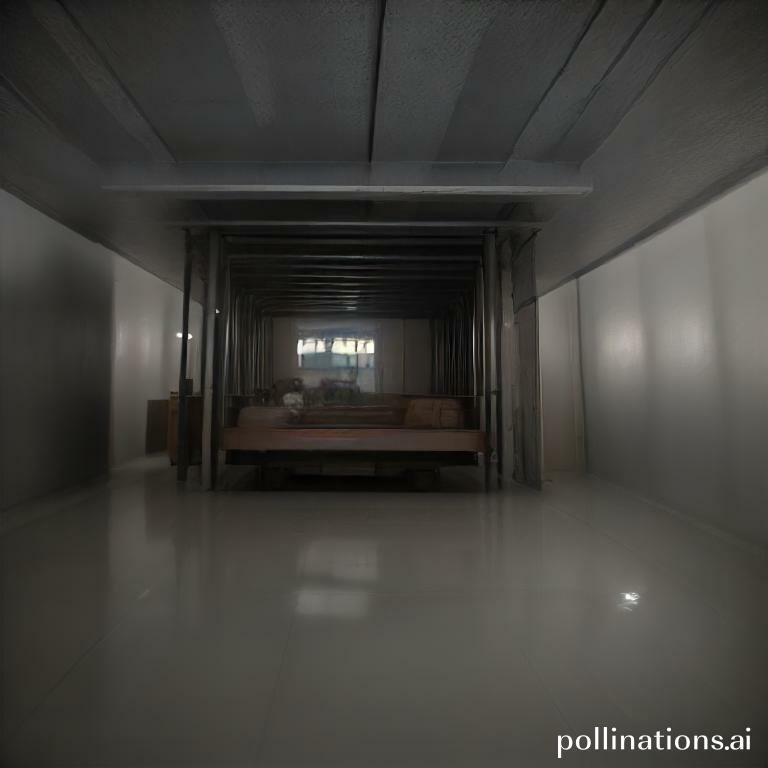
Benefits of Using Anode Rods in Recirculating Systems
Using anode rods in recirculating systems offers numerous benefits that can elevate the performance and lifespan of your water heater. These rods play a crucial role in maintaining water quality and preventing sediment buildup in the tank.
Prolongs the life of your water heater
Anode rods are designed to attract corrosive elements present in the water, thereby preventing them from damaging the inner lining of the tank. By sacrificing themselves, the anode rods protect the water heater from rust and corrosion, significantly prolonging its lifespan.
Reduces sediment buildup in the tank
Sediment buildup is a common issue in water heaters, especially in recirculating systems. The use of anode rods helps to reduce sediment accumulation by attracting and neutralizing minerals and other particles that can settle at the bottom of the tank. This not only improves the efficiency of the water heater but also prevents clogs and scale formation.
Improves water quality
Anode rods not only protect the water heater but also contribute to better water quality. By attracting and neutralizing harmful elements, such as sulfur and bacteria, the rods help in maintaining clean and safe water for everyday use. This ensures that you and your family can enjoy fresh and healthy water without any concerns.
Investing in anode rods for your recirculating system is a wise decision that can have long-lasting benefits. Not only do these rods prolong the life of your water heater, but they also reduce sediment buildup and improve water quality. Make sure to choose high-quality anode rods and regularly inspect and replace them as needed to ensure optimal performance of your water heating system.
| Benefit | Description |
|---|---|
| Prolongs the life of your water heater | Anode rods protect the water heater from rust and corrosion, extending its lifespan. |
| Reduces sediment buildup in the tank | Anode rods attract and neutralize minerals, preventing sediment accumulation. |
| Improves water quality | Anode rods attract and neutralize harmful elements, ensuring clean and safe water. |
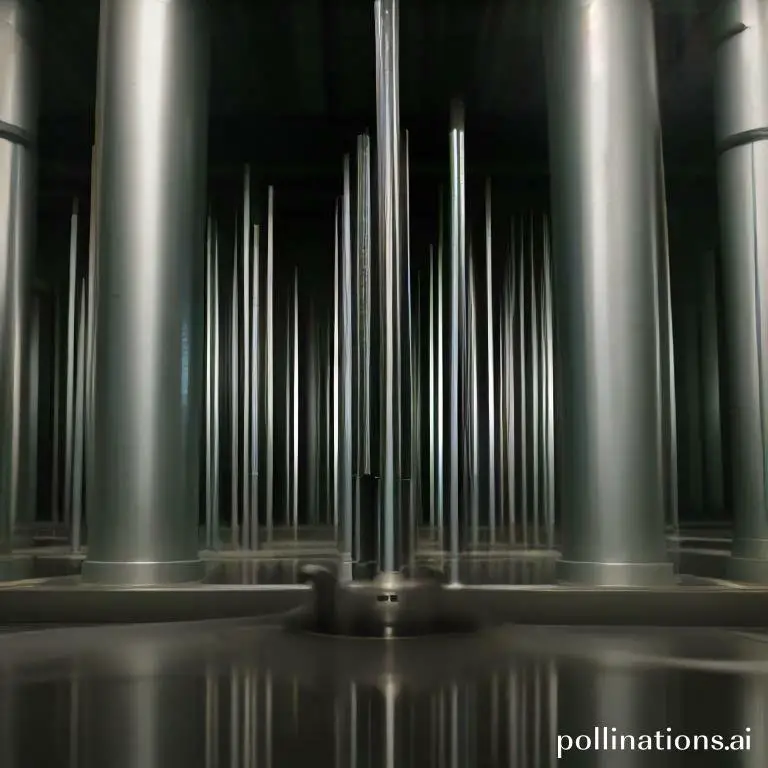
Tips for Choosing the Right Anode Rod for Your Recirculating System
Touching on maintaining a healthy and efficient recirculating system for your water heater, choosing the right anode rod is crucial. Anode rods play a vital role in preventing corrosion and extending the lifespan of your water heater tank. Here are some essential tips to help you make the best choice:
1. Consider the material of your water heater tank
The material of your water heater tank can greatly impact the type of anode rod you should choose. If you have a steel tank, a magnesium anode rod is recommended, as it works well with steel. For tanks made of aluminum or other materials, different types of anode rods may be more suitable. It’s important to consult your water heater manufacturer’s guidelines to determine the right material for your tank.
2. Determine the water quality in your area
The water quality in your area can also influence your choice of anode rod. If your water is hard or contains high levels of minerals, a powered anode rod may be more effective in preventing corrosion. Whilst, if your water is soft and low in mineral content, a standard sacrificial anode rod may suffice. Mastering your water quality will help you select an anode rod that will provide optimal protection for your recirculating system.
3. Evaluate the frequency of use of your recirculating system
The frequency of use of your recirculating system is another important factor to consider. If you use your system frequently, such as in a commercial setting, a high-quality, durable anode rod is recommended. These rods are designed to withstand heavy usage and provide long-lasting protection against corrosion. For residential use or less frequent system usage, a standard anode rod may be suitable.
| Material | Recommended Anode Rod |
|---|---|
| Steel | Magnesium Anode Rod |
| Aluminum or other materials | Consult manufacturer’s guidelines |
Bottom Line
Pertaining to anode rod compatibility with recirculating systems, it’s important to choose the right type of rod to ensure optimal performance and longevity of your water heater. If you have a recirculating system, it’s best to use a flexible or segmented anode rod that can withstand the constant flow of water and prevent corrosion. Additionally, it’s important to regularly inspect and replace your anode rod to prevent damage to your water heater and ensure it continues to function properly. By taking these steps, you can extend the life of your water heater and avoid costly repairs or replacements in the future.
Overall, choosing the right anode rod for your recirculating system is a crucial step in maintaining the health and efficiency of your water heater. By doing your research and consulting with a professional, you can ensure that you’re using the best possible anode rod for your specific needs and avoid any potential issues down the line.
Read More:
1. Anode Rod Impact On Water Heater Noise
2. Diy Anode Rod Replacement For Small Spaces
